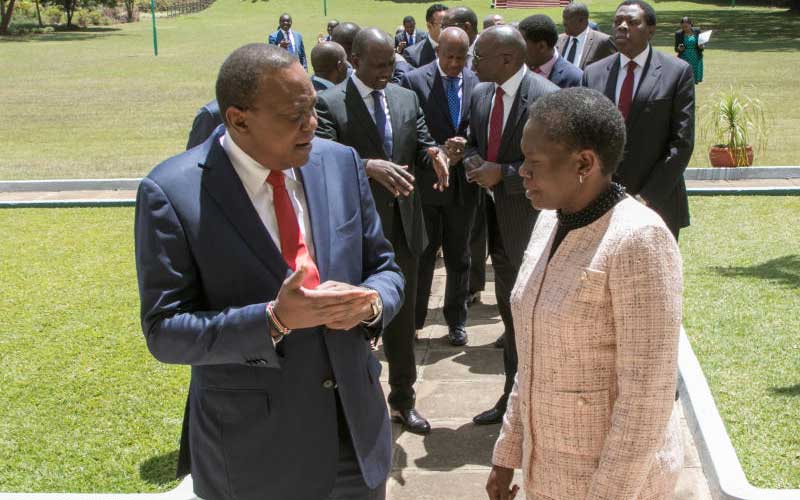×
The Standard e-Paper
Kenya’s Boldest Voice

Not for the first time and perhaps not for the last time, President Uhuru Kenyatta in a rare moment of candour lashed out at his Cabinet. On his way to Arusha for the East African Community Heads of State Summit last Thursday, President Kenyatta gave details of a Cabinet meeting – the first in 2019- he held that morning.
He said he had asked those CSs engaging in politics to quit.